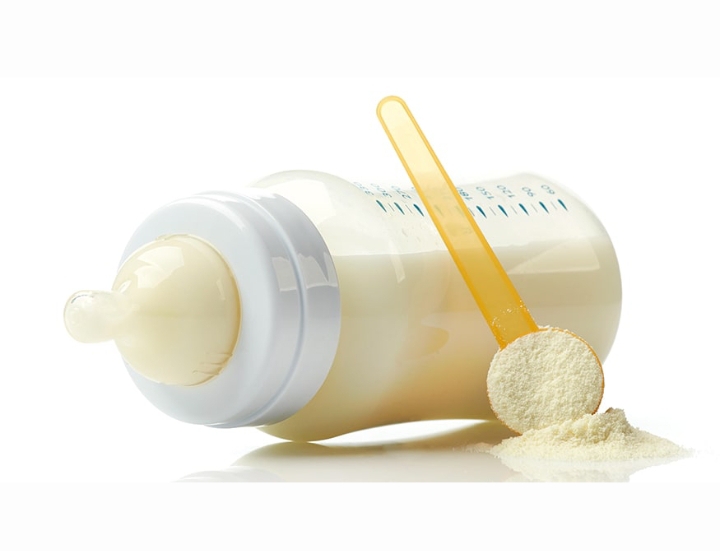World Health Organization’s (WHO) scientist, Prof Nigel Rollins, has called for an urgent clampdown on the exploitative marketing activities of infant formula milk companies in order to protect nursing mothers.
Confiance News gathered from a United Nation’s report on Thursday.
This new research highlights the vast economic and political power of the big formula milk companies, as well as serious public policy failures that prevent millions of women from breastfeeding their children,” said Nigel Rollins, one of the authors of a series on the $55 billion-a-year industry and their marketing “playbooks”, published in the peer-reviewed medical journal The Lancet.
“Actions are needed across different areas of society to better support mothers to breastfeed for as long as they want, alongside efforts to tackle exploitative formula milk marketing once and for all,” he added.
Corroborating, the WHO Director General (DG), Dr. Tedros Ghebreyesus tweeted, “We also continue to call on governments to end exploitative marketing of formula milk, and increase health sector support for #breastfeeding so that all families have access to reliable information and advice before and after birth.”
650 million lack ‘maternity protection’
The three-paper series recommends much greater support for breastfeeding within healthcare and social protection systems, including guaranteeing sufficient paid maternity leave.
Currently, around 650 million women lack adequate maternity protections, the papers noted.
Written by a group of doctors and scientists, the series examines how formula marketing tactics undermine breastfeeding and target parents, health professionals and politicians, and how feeding practices, women’s rights and health outcomes, are determined by power imbalances and political and economic structures.
“Breastfeeding is not the sole responsibility of women and requires collective societal approaches that take gender inequities into consideration,” the authors wrote. Indeed, reviews from 2016 to 2021 and country-based case studies indicate that breastfeeding practices can be improved rapidly through multi-level and multi-component interventions.
Dairy lobbyists’ misleading claims
The World Health Assembly has already addressed the decades-long challenge of questionable marketing practices among infant formula producers. In 1981, it developed the International Code of Marketing of Breast-milk Substitutes, following an investigative report on Nestle’s targeted marketing in low and middle-income countries in the 1970s.
The new series stated that misleading marketing claims and strategic lobbying from the dairy and formula milk industries add to the challenges parents face.
Such claims as suggesting that formula alleviates fussiness, can help with colic, and prolongs nighttime sleep, are only increasing parents’ anxiety, the papers stated.
Linda Richter, of the University of the Witwatersrand, South Africa and series co-author, said the formula milk industry uses “poor science” to suggest, with little supporting evidence, that their products are “solutions to common infant health and developmental challenges”.
This marketing technique “clearly violates the 1981 Code, which says labels should not idealize the use of formula to sell more product,” she added.
Breastfeeding’s immense benefits
WHO recommends exclusively breastfeeding infants for at least six months. The practice provides immense benefits to babies and young children, from reducing infection risks to lowering rates of obesity and chronic diseases later in life.
However, globally, only around half of newborns are put to the breast within the first hour of life.
Corporations exploit lack of support
At a time when less than half of newborns are breastfed, as per WHO guidelines, the series explains how the industry’s marketing exploits the lack of support for the practice by governments and society.
The tactics also misuse gender politics to sell its products, framing breastfeeding advocacy as a “moralistic judgment” while presenting milk formula as a “convenient and empowering solution” for working mothers, the authors found.
Politicizing breastmilk
Drawing attention to the power of the milk formula industry to influence national political decisions, the series stated that the companies also interfere with international regulatory processes. For instance, the dairy and formula milk industries have established a network of unaccountable trade associations that lobby against policy measures to protect breastfeeding or control the quality of infant formula.
In the face of those pressures on parents, the series’ authors made several recommendations; among them was a need for broader actions across workplaces, healthcare, governments, and communities, to effectively support women who want to breastfeed. They also called for formal recognition of the contribution of women’s unpaid care work to national development.
Set of recommendations
Series co-author Rafael Pérez-Escamilla, of the Yale School of Public Health, highlighted other critical steps.
“Given the immense benefits of breastfeeding to their families and national development, women who wish to breastfeed need to be much better supported so that they can meet their breastfeeding goals,” he said.
“A large expansion in health professional training on breastfeeding, as well as statutory paid maternity leave and other protections are vital.”







Leave a comment